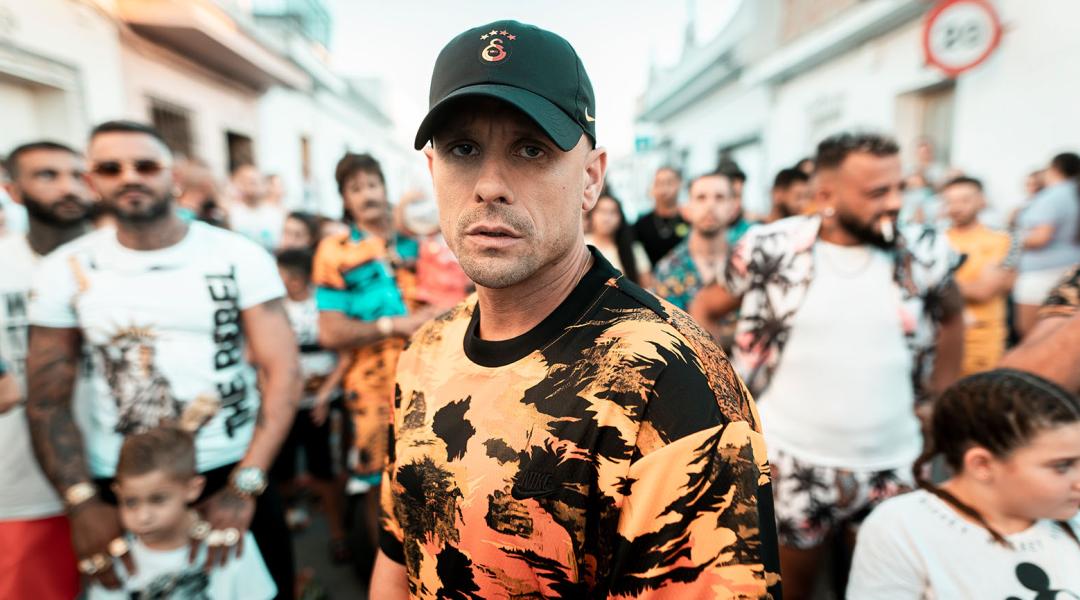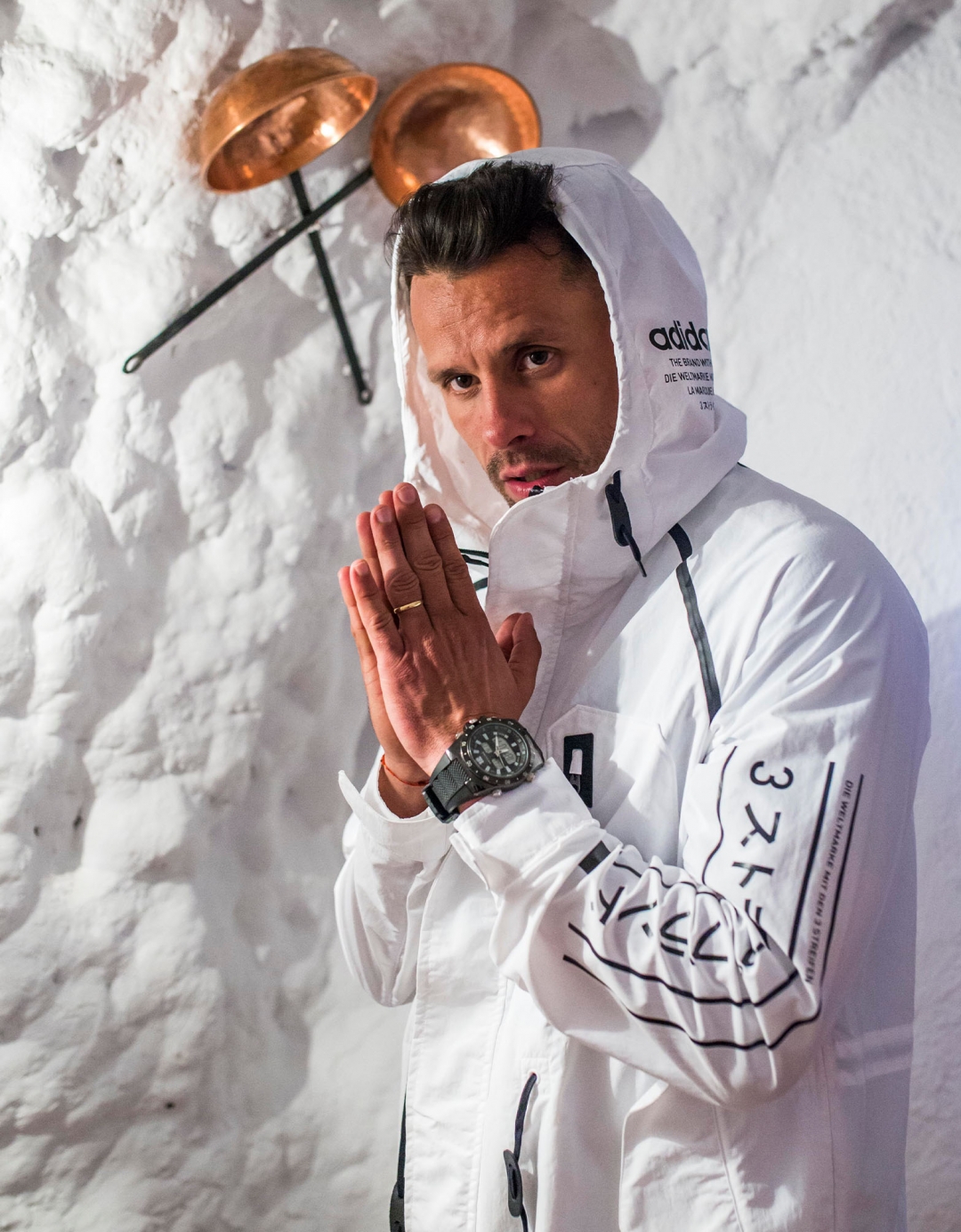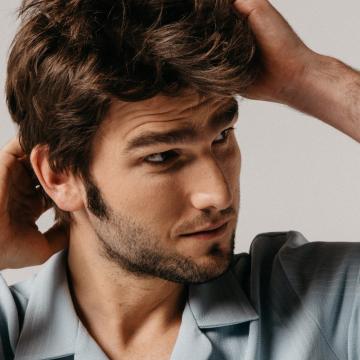Talent for comics and graphic novels is endless in Spain. Paco Roca, Ana Penyas, Paco Sordo, María Medem, Juanjo Guarnido, Teresa Valero… Do you want to get to know some of the best illustrators in the country?

Haze has lived a thousand lives: flamenco rapper, soundtrack composer, language teacher ... And at the root of everything is his neighborhood, and its identification with the disinherited, with those who have had to make an effort to get ahead. Is the voice of the streets and his lyrics force us to look closely at a reality to which we often prefer to turn our backs. 'Carne de cañón', his next album, is not going to leave us with a choice: get face to face without looking away.
Sergio López, better known as Haze, was a boy who played soccer dodging syringes on the streets of Los Pajaritos in the 80s, one of the most impoverished neighborhoods in Seville. Crime and the socio-economic difficulties of the environment, including his fleeting time in prison, inspired his first demo, Crónicas del barrio (2004), which drew the attention of large multinational record companies. Today, the flamenco rapper has just published his first autobiographical collection of poems, El niño que salió del barrio, and he combines the release of his next album, Carne de cañón, with his dream come true: to become a high school teacher.
¿How do you remember the neighborhood of your childhood, that has inspired many of your lyrics?
That place was the perfect breeding ground to become “cannon fodder”. We lived through the heroin boom, we played in the square between syringes, we saw the police violence against drug addicts who used in front of us, the raids with helicopters, the demonstrations of families against drugs... What I lived inspired me, that's what I consumed. Although I was fortunate to have a structured family with values and love who, it’s true, suffered from economic shortages but who never lacked a hot plate at the table.
¿Do you think that shortage made you look for an outlet in music?
The financial difficulties yes, but above all it was the example of my parents' sacrifice that led me to fight for my dreams. Asking stores to trust you when you are seven years old —“my mother will pay you at the end of the month"— is very embarrassing, but it also makes you mature quickly. My father distributed phone books and slept in the van to save on allowances and bring more money home. My mother worked cleaning in different places and I remember her back pain and her fatigue. When I worked as a bricklayer or an advertising delivery man for two dollars, I realized that I had to work hard if I wanted to get off the wheel.
“I identify a lot with the disinherited, with those who have to make an effort to get ahead”
¿What were the first verses you wrote?
Maybe they were love verses to try to flirt with girls when I was in school... But my first rhymes as an apprentice rapper were La vil hipocresía and Personalidad inexistente back when I was about 15 years old. It was clear to me that the world was very hypocritical and that young people my age, teenagers, had no personality. That may not have changed: styles overlap and follow one another, heavys, boy bands, reggaeton, trap... Young people continue to shift with styles.
But the rap remains…
Because rap is more of a description, a narrative of what happens. In my case I am only a narrator of real things, which are true and which must be taken into account. You should not look the other way. I pose: “This is reality, who is going to do something about it?”. From my first album to the last, the situation in impoverished neighborhoods hasn't improved much. The deterioration of the peripheries of cities and the socio-cultural and economic deficiencies suffered by those areas are still current issues that I can transmit through rap.

Today Haze combines his musical career with his work as a language teacher at an institute in Coria del Río, Seville. © HAZE TEAM
¿How did the opportunity to compose soundtracks come about?
There was a time when cani and social cinema were in fashion and directors and producers called me for films like Yo soy la Juani, Siete vírgenes or Madre amadísima. Right now I don't have film projects, but I love cinema and I think I make very cinematographic music that adapts very well to that art. In addition, a lot and very good Spanish cinema is being made, where neighborhood life and mannerisms are reflected, so at some point the opportunity will to come for them to incorporate flamenco rap.
In 2004 you won the Best Spanish Hip Hop Album Award. And just four years later the crisis happened, what did it mean for you?
These were difficult times for all of us and I am only one of the many who suffered that economic blow. Concerts were over, the cache went down, there were no bowling, I couldn’t even pay my mortgage, like many others. And that’s when I had to reinvent myself: I went back to study, at the age of 31 and without having touched a book since secondary school. I was approved access to the University to study Hispanic Philology, get a doctorate [his master's degree in Hispanic Philology was awarded an Extraordinary Prize by the University of Seville] and then present myself to the professorships. Would I have followed this path without the crisis of 2008? Well, I don't know, but I do know that it has been a good path and that I have fulfilled my dream of becoming a teacher.
“I am concerned about the rise of 'drug fiction' because the bad guy is portrayed as a hero and poor young people want to be like the bad guy”
For years you have written about gender violence, migration crises, the ravages of drugs ... What issues are you worrying about now?
I continue to worry about the disinherited because I identify a lot with those who have to make an effort to get ahead. That is still very present in my lyrics. That said, I am also concerned about the rise of narco-fiction. In cinema, literature or music we see great productions that glorify the world of drug trafficking, isn't it astounding? This is doing a lot of damage in the poorer areas, because the bad guy is seen as a hero and poor young people want to be like the bad guy.
Would you say that you return to your origins, to the hood, in your next album, Carne de cañon?
I rather believe that neither poverty, nor crime, nor drugs, nor jail will cease to exist and that is why it is a timeless album, which will be released in March and from which I am currently releasing singles. It's called Carne de Cañón (Cannon Fodder) because at the end of the day in a difficult environment you run the risk of becoming prison fodder. This album is a portrait of the reality of the poorest peripheries, because there is imagery of the suburb, the prison world and drugs, the corruption of the institutions and their relationship with crime. And in order to write about this I have tried to be very direct, very explicit. The mix of rap and flamenco allows very hard lyrics and, at the same time, very catchy flamenco melodies.
¿And how do you combine the self-production of the album with your work as a teacher?
Acknowledge that it will simply be a slow-cooked album that I started working on back in 2019. I was caught in the middle of the pandemic, which I took advantage of to focus on composition and music, then I studied opponents, I got a place, I prepared for programming and then comes time to get up early every morning to go teach at a high school in Coria del Río (Seville). Is that very difficult to do as an independent musician, without the machinery or the financial muscle of the large multinationals? Yes, but the challenge is also very rewarding. You have to adapt with the times, you have to learn, and we are working on that.



